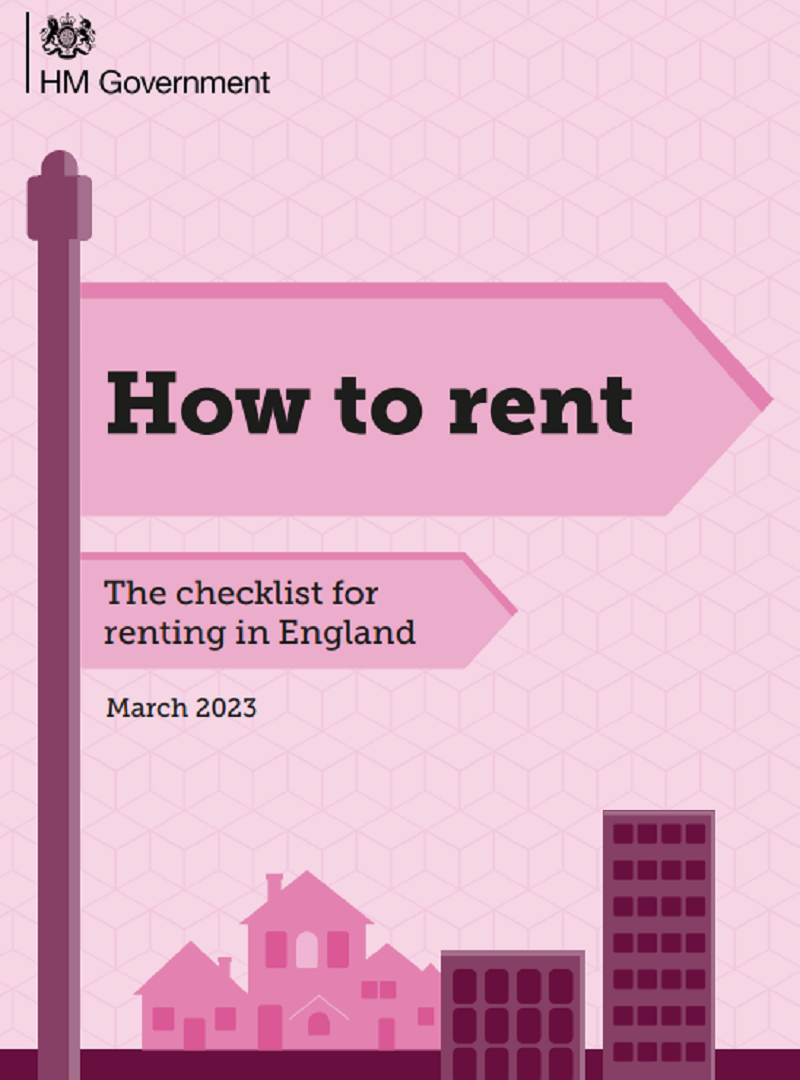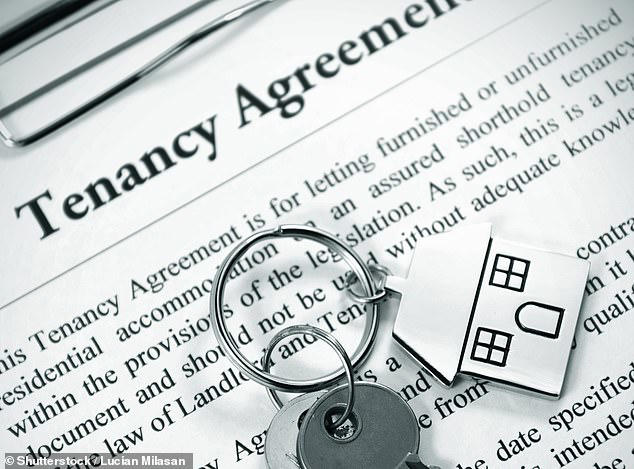Rental sector organisations have been given an indication by the Department of Levelling Up, Housing and Communities that a new How To Rent guide will be issued in early October.
Private landlords MUST serve the latest version of the guide at the start of any new tenancy and on renewal if there has been an update to the contents of the guide. It forms part of the prescribed information landlords must issue, and if they do not, they lose the right to repossess using Section 21.
The latest update - likely on October 2 - will be the second update in 2023 and the revision next month will include reference to the controversial Housing Loss Prevention Advice Service, which replaces the Housing Possession Court Duty Schemes and allows tenants to access legal advice if they are at risk of losing their home.
The HLPAS offers early legal advice, free of charge, to anyone at risk of possession proceedings and loss of their home. Advice can be provided in relation to Housing, Debt and Welfare Benefits issues, and this assistance includes so-called ’In Court Duty’ on-the-day emergency advice and advocacy to anyone facing possession proceedings.
Under the new scheme, the Legal Aid Agency is extending court duty scheme work to include early legal advice on housing, welfare benefits and debt from the moment a landlord or lender issues a notice to repossess. This is non-means and non-merits tested. A government statement says “the service enables anyone at risk of losing their home or facing possession proceedings to get free legal advice, and representation in court, regardless of their financial circumstances.”
The government says new versions of the How to Rent guide will be available on the gov.uk website during the day on Monday October 2.
I am a landlord: What should be included in my tenancy agreements?
If you are a landlord and am concerned my lettings agent is issuing out of date contracts to my tenants, given all the changes in regulations that are taking place.
What do we need to look out for in the tenancy agreement?
A lot has changed in the world of property and regulation, and it can be challenging to keep on top of it all. We speak to a top legal expert about what landlords - and tenants - should be keeping an eye on in their latest tenancy agreements.
These include making sure that basic items - such as headline clauses that contain names and addresses - are correct, along with clauses about tenant fees and blanket prohibitions.
David Cox, Rightmove's legal & compliance director, says "the tenancy agreement is the most important document that agents and landlords use. It can be quite complicated, as there is so much legislation that landlords and agents need to abide by. Although there is no legal requirement to have a written tenancy agreement in place, they are extremely important as they set out contractual issues as well as statutory matters. While they can be complicated, there are a few key things that landlords and tenants should look out for to make sure the tenancy agreement is fair and doesn't inadvertently break the law."
Headline clauses
Within a tenancy agreement, there should be clear headlines at the beginning of the contract, which set out the key terms which have been individually negotiated between the landlord and tenant. This includes the name of the landlord and tenant, the address of the property, how much the rent is per month, the terms of the agreement, any guarantors, the permitted occupiers and the deposit.
These headline clauses are an important reference point for both landlord and tenant throughout the tenancy.
Unfair contract terms
The Unfair Contract Terms Act limits to what extent a landlord can either exclude their liability and responsibilities to the tenant, or impose overly hard conditions on them.
Unfair contract terms could include a requirement for professional cleaning when the tenancy ends, rather than a requirement to simply leave the property in the same condition as when the tenant first moved in. If a tenant spots anything in their agreement that appears to reduce any responsibility over making sure the home is reasonable or safe to live in, then this should be raised with the letting agent.
Tenant fees
In 2019, the Government brought in the Tenant Fees Act to reduce the costs that tenants face.
There are now limits on what landlords can charge a tenant for. Generally they are only able to charge them rent; a refundable tenancy deposit capped at five weeks' rent; and a refundable holding deposit to reserve a property, also limited to a week's rent. Tenants should be able to see clearly in their agreement what the property will cost them.
Blanket prohibitions
The proposed Renters' Reform Bill seeks to widen the removal of blanket bans on certain terms within a Tenancy Agreement.
'No DSS', which has been banned from Rightmove listings since 2019, is an example, which if included in a rental listing restricts all tenants on benefits from applying for the property. This and a blanket ban on keeping pets will be outlawed in the Renters' Reform Bill, and the Government may extend this to other terms such as a prohibition on renting to families.
Free guide published for landlords and tenants on tenancy disputes
A new comprehensive guide to dispute resolution for landlords and tenants has been published.
The Tenancy Deposit Scheme (TDS) and the National Residential Landlords Association (NRLA) have teamed to provide a guide on how to navigate potential conflicts that may arise during a tenancy without the need for legal action. The free guide aims to educate landlords and tenants about their responsibilities and offers practical advice on preparing for disputes.
Tenancy relationships can end on a positive note
Some of the most common types of tenancy dispute claims include non-payment of rent and damage to property or items.
Steve Harriott, chief executive officer of TDS Group, said “we want to provide landlords and tenants with the knowledge and resources they need to navigate the dispute process effectively and ensure fair outcomes for both parties. By understanding the principles of dispute resolution and having insight into what our adjudicators are looking for, we believe that disputes can be further minimised, and tenancy relationships can end on a positive note.”
Landlords must provide evidence
The TDS average time of dispute resolution varies across the UK with insured disputes resolved in England taking 20.5 days and custodial disputes in 20 days.
In Northern Ireland, insured and custodial disputes take an average of nine business days.
The TDS says being well-prepared for a dispute can help significantly in obtaining a positive result and reducing time delays. The guide says “claims made for deductions from a deposit are civil claims, and therefore the adjudicator must be persuaded “on a balance of probabilities” that the tenant breached their obligations, and that the landlord has suffered, or is likely to suffer, a loss as a result. In simple terms, landlords must provide evidence that will support the claims they’ve submitted to have a chance of success. The deposit remains the property of the tenant until the adjudicator is shown sufficient evidence to prove the landlord has a justifiable claim. Adjudicators are impartial and the onus is on the landlord to convince them that the claim is valid.”
More information on the guide can be found here


